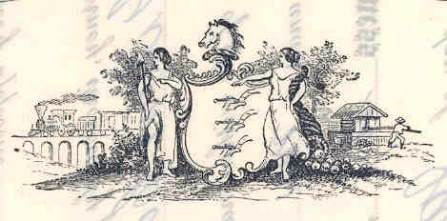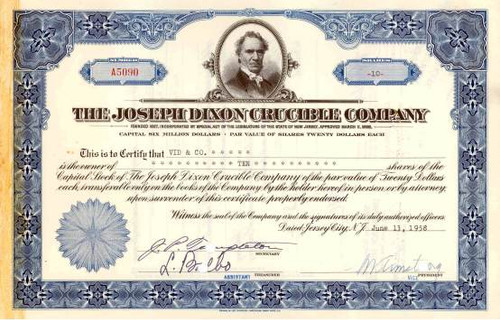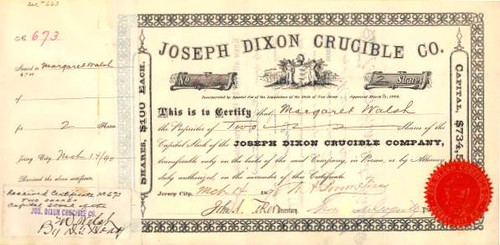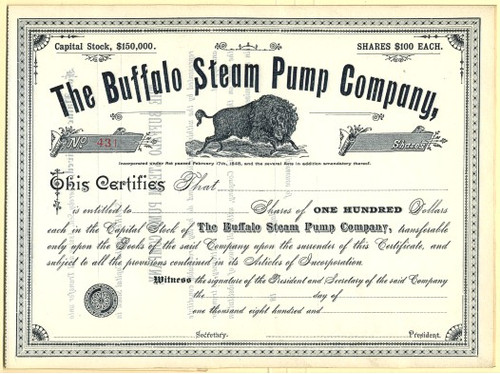Beautifully engraved certificate from the Joseph Dixon Crucible Company issued in 1873-1898. This historic document has an ornate border around it with a vignette of allegorical women with a shield and a horse head. This item is hand signed by the Company's President and Secretary and is over 104 years old. The certificate has cut cancellations through the signatures. 
Certificate Vignette In 1827, Joseph Dixon began his business in Salem, Massachusetts. He discovered the merits of graphite as a stove polish and an additive in lubricants, foundry facings, brake linings, oilless bearings, and non-corrosive paint and manufactured lubricants, pencils, stove polish and graphite crucibles; refractory vessels used for melting metals and minerals. One of Joseph Dixon's inventions was a heat-resistant graphite crucible widely used in the production of iron and steel during the Mexican-American War. This invention was so successful that Joseph Dixon built a crucible factory in New Jersey, in 1847. During the 1860's, people still wrote with quill pens and ink, even though Joseph Dixon introduced the first graphite pencil in 1829. It wasn't until the Civil War that the demand for a dry, clean, portable writing instrument became popular and led to the mass production of pencils. Joseph Dixon was the first to develop pencil automation. In 1872, the company was making 86,000 pencils a day. By 1870, The Joseph Dixon Crucible Company was the world's largest dealer and consumer of graphite and had garnered worldwide recognition for its superior product quality. In 1982, the Joseph Dixon Crucible Company merged with the Bryn Mawr Corporation, a Pennsylvania transportation and real estate company with operations dating back to 1795, the beginning of President George Washington's second term. Together, these companies formed the Dixon Ticonderoga Company, named after Joseph Dixon and its oldest brand-name pencil.

Certificate Vignette








